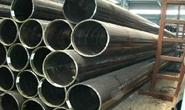Government/Policy

November 15, 2017
WTO Sides with Korea on OCTG Duties
Written by Sandy Williams
A dispute over OCTG dumping duties assigned by the U.S. on imports of Korean OCTG drew mixed conclusions from a World Trade Organization dispute panel.
The WTO sided with South Korea on claims that the U.S. violated rules in the Antidumping Agreement regarding the calculation of fair value of OCTG. The panel determined that Commerce did not use data pertaining to sales of a like product from the home market of Korea to determine the value of the product. Commerce excluded line pipe and standard pipe, which Korea claimed is the same like-category as OCTG, and instead made its comparison to profit data from a multinational corporation outside of Korea.
The WTO, however, rejected Korea’s arguments regarding Commerce’s viability test and other procedural and methodology issues.
The WTO recommended that “the United States bring its measures into conformity with its obligations under the Antidumping Agreement.” Both parties have 60 days to appeal the decision.
Korean steel producers are continuing to pursue a suit with the U.S. Court of International Trade after Commerce exercised its authority in April 2017 to address market distortions by employing Section 504 of the Trade Preference Extension Act of 2015. Section 504 allows Commerce to disregard foreign cost of production in calculating antidumping duties if it determines that a “particular market situation” exists that does not reflect the cost of production in ordinary trade. Commerce included electricity subsidies in its evaluation of price distortion.
Duties were raised to a range of 2.76 to 24.92 percent from previously assigned duties of 4.0 to 6.5 percent. Final duties were assigned as follows: 24.92 percent on OCTG imports from Nexteel, 2.76 percent on SeAH Steel, and 13.84 percent on Hyundai Steel and other South Korean steelmakers.







